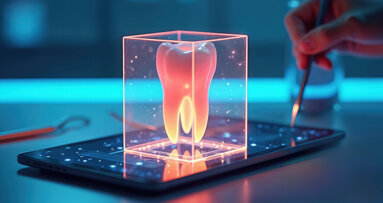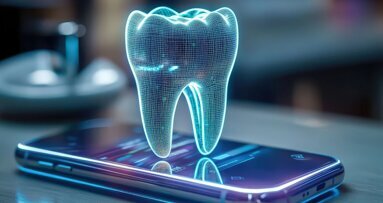Diagnostic risks were also noted in the studies included. Studies found that some AI platforms produced false negative results, particularly for subtle findings such as voids or early caries. This finding reinforces the importance of viewing AI as a support tool rather than as a replacement for clinical judgment.
Patient responses to the use of AI in their care were mixed. The report explained that, while some patients welcomed robotics-assisted surgery, others experienced increased anxiety in the presence of complex machinery. Also, compliance with AI-driven monitoring tools tended to decline over time, and the studies suggested that this was because repetitive automated messages or the frequency of scans may cause patients to disengage. In addition, user error when capturing intra-oral photographs affected the reliability of monitoring.
The report found little evidence on issues concerning equality, diversity and inclusion or ethical and data protection, despite the generation of large volumes of additional patient data by AI-based systems. The authors noted that research aimed specifically at the use of AI in dentistry in the UK could “ensure that aspects such as equality, diversity and inclusion, and data protection, were properly considered in regard to the UK’s cultural and social context”.
Overall, the report concluded that, while AI has clear potential to enhance dental services, its use in daily dental practice remains limited. It called for future UK-specific research to address clinical, regulatory and ethical considerations, focusing particularly on patient safety and diverse patient needs.
The report, titled Artificial Intelligence and Dental Service Provision: A Rapid Evidence Assessment, can be accessed here.



 Austria / Österreich
Austria / Österreich
 Bosnia and Herzegovina / Босна и Херцеговина
Bosnia and Herzegovina / Босна и Херцеговина
 Bulgaria / България
Bulgaria / България
 Croatia / Hrvatska
Croatia / Hrvatska
 Czech Republic & Slovakia / Česká republika & Slovensko
Czech Republic & Slovakia / Česká republika & Slovensko
 France / France
France / France
 Germany / Deutschland
Germany / Deutschland
 Greece / ΕΛΛΑΔΑ
Greece / ΕΛΛΑΔΑ
 Hungary / Hungary
Hungary / Hungary
 Italy / Italia
Italy / Italia
 Netherlands / Nederland
Netherlands / Nederland
 Nordic / Nordic
Nordic / Nordic
 Poland / Polska
Poland / Polska
 Portugal / Portugal
Portugal / Portugal
 Romania & Moldova / România & Moldova
Romania & Moldova / România & Moldova
 Slovenia / Slovenija
Slovenia / Slovenija
 Serbia & Montenegro / Србија и Црна Гора
Serbia & Montenegro / Србија и Црна Гора
 Spain / España
Spain / España
 Switzerland / Schweiz
Switzerland / Schweiz
 Turkey / Türkiye
Turkey / Türkiye
 UK & Ireland / UK & Ireland
UK & Ireland / UK & Ireland
 Brazil / Brasil
Brazil / Brasil
 Canada / Canada
Canada / Canada
 Latin America / Latinoamérica
Latin America / Latinoamérica
 USA / USA
USA / USA
 China / 中国
China / 中国
 India / भारत गणराज्य
India / भारत गणराज्य
 Pakistan / Pākistān
Pakistan / Pākistān
 Vietnam / Việt Nam
Vietnam / Việt Nam
 ASEAN / ASEAN
ASEAN / ASEAN
 Israel / מְדִינַת יִשְׂרָאֵל
Israel / מְדִינַת יִשְׂרָאֵל
 Algeria, Morocco & Tunisia / الجزائر والمغرب وتونس
Algeria, Morocco & Tunisia / الجزائر والمغرب وتونس
 Middle East / Middle East
Middle East / Middle East










































To post a reply please login or register